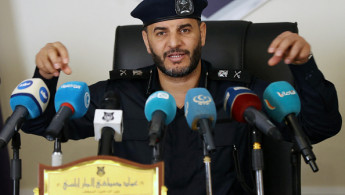Libya factions remain on Tripoli streets as withdrawal plan announced
Major armed factions remained visible on the streets of Libya's capital Tripoli on Thursday after the Government of National Unity said they had agreed to withdraw from checkpoints and stop patrols over the coming weeks.
Myriad armed forces have jostled for position in Tripoli since a 2011 NATO-backed uprising that unseated long-time ruler Muammar Gaddafi and led to years of chaos, warfare and insecurity.
Interior Minister Emad Trabulsi announced on Wednesday that the main armed factions operating in Tripoli had agreed to remove their forces before the end of the Muslim fasting month of Ramadan, which is expected around April 10.
"The plan is a little complicated," Trabulsi said, adding that "all the commanders of the brigades and security services are ready for the success of the work of the Security Directorate."
However, even if armed factions become less visible on the streets, any substantive withdrawal is seen as unlikely without broader agreements on Libya's long-term political future.
Most of the main factions in Tripoli retain bases inside the city and they have periodically clashed in recent years during deadly bouts of street fighting, sometimes caused by local disputes and sometimes by Libya's fractious national politics.
Long convoys of military vehicles with mounted heavy weapons frequently patrol key streets in central Tripoli, setting checkpoints at traffic intersections and sometimes triggering gunfights with rival forces.
Most of the main factions have gained official or semi- official status with a budget from the government and Trabulsi named several of the most powerful as having agreed to remove their forces.
Civil units including the police will maintain a street presence, he said.





 Follow the Middle East's top stories in English at The New Arab on Google News
Follow the Middle East's top stories in English at The New Arab on Google News


